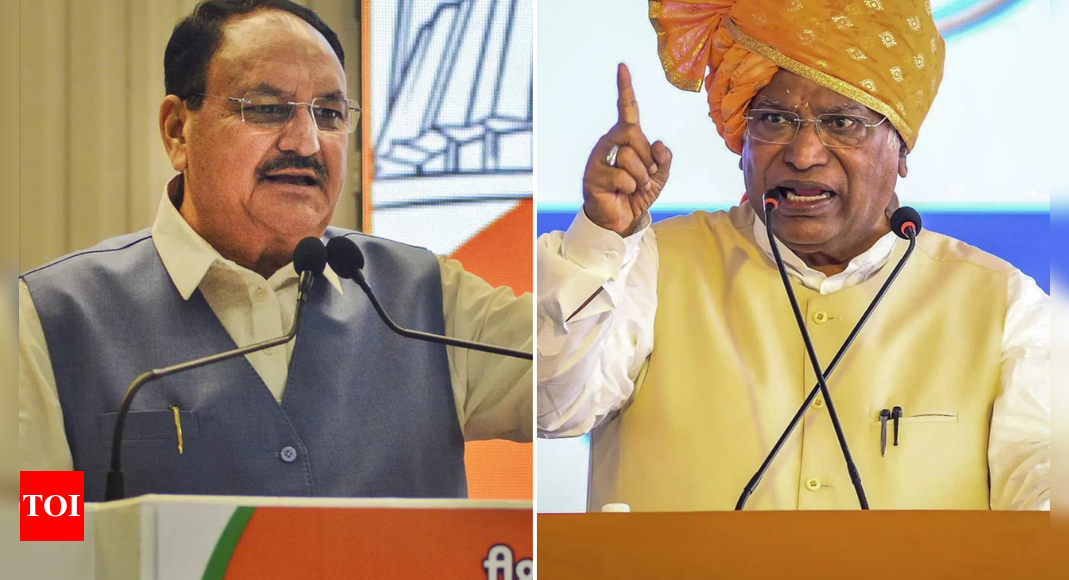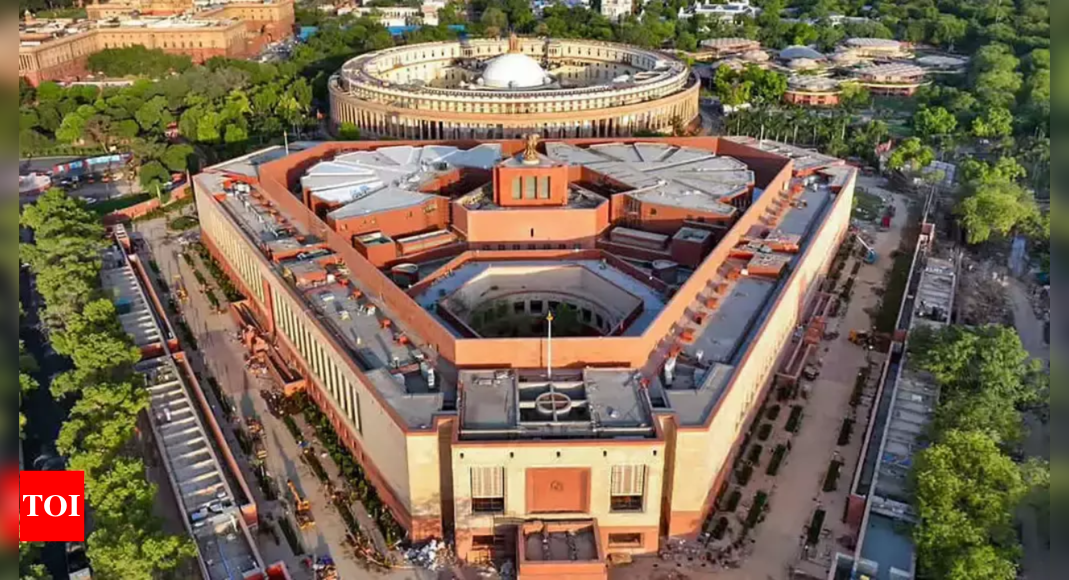
MUMBAI: Till the financial year 2022-23, a standard deduction of Rs 50,000 was available to the salaried only under the old tax regime. Fortunately, Budget 2023 extended this benefit even under the new tax regime.
While it offers lower tax rates, under the new regime an individual cannot claim various deductions and exemptions. From the perspective of the salaried employee, the various tax benefits that are denied are: House Rent Allowance, Leave Travel Allowance, deductions under various sections of Chapter VI-A, which include investments say to EPF which otherwise would have meant a deduction claim under section 80C.
A deduction under section 80C for instance, incentivizes tax-related savings, but is it fair to deny premium on medical insurance under the new regime? Or for that matter, the government can take a step further and reintroduce medical reimbursement benefits for the salaried. Also, given inflation, a revision in the standard deduction limit would be much welcome. Will the Budget 2024 meet the needs of the salaried class? It remains to be seen.
Need for an increase in the standard deduction limit:
A standard deduction of Rs 40,000 to replace the transport allowance and medical reimbursement with limits of Rs 19,200 and Rs 15,000 was re-introduced in the Budget 2018. It had existed earlier, but was abolished by the Finance Act of 2005. The interim budget 2019, increased the limit of standard deduction by 10,000 and till date Rs 50,000 is the flat standard deduction available to all salaried employees.
Kinjal Bhuta, chartered accountant points out that the cost of living has increased manifold since the last five years and there is a need to revise these limits of standard deduction.
“This is the only deduction available to salaried class, whereas the individuals carrying on business and are self-employed are allowed a host of expenses based on actuals without any limits. Restricting the deduction to only up to Rs 50,000/- is unequitable and unfair towards the salaried employees.” “There are various expenses incurred by salaried employees like conveyance and upskilling. The standard deduction limit should be increased to Rs one lakh to meet the current standard of living. The employees in higher and C-Suite positions also incur expenses towards personal grooming, business and network development. For such employees having a salary of more than Rs 20 lakhs, the standard deduction limit should be increased to Rs three lakh,” is Bhuta’s suggestion.
The Chamber of Tax Consultants (CTC) in its pre-budget memorandum also calls for an amendment in the provisions relating to standard deduction. “For avoiding leakage of revenue, such a deduction may be a certain percentage of salary, say 25% of the salary, and maximum amount may be restricted to Rs 3 lakh. This would ensure that an employee who gets a salary is not put at any disadvantage compared to someone who draws the same amount as a freelancer professional.
Dipika Agarwal, chartered accountant points out that in addition to upskilling skills, a salaried employee also needs to have a strong support system such as a driver, maid etc. On an average, these expenses in Tier 1 cities would range somewhere in between Rs 40,000 – Rs 50,000 per month “The standard deduction can be viewed as not only to offset the expense incurred for earning the income but also kind of a subsistence allowance – a salaried individual should not be worse off than a freelancer providing similar services because of his inability to claim expenses from salary income,” she states.
According to her, under the new regime, which is also the default regime, very few deductions are permitted for salaried individuals, hence it all the more calls for higher standard deduction. Apart from an increase in the standard deduction limit, in her view this should be based on a percentage of income earned, so as to have parity across different income slabs.
Reintroduce medical reimbursement expenses: CTC in its pre-budget memorandum has recommended re-introduction of medical reimbursement exemption, but with a higher limit of Rs 50,000 per year.
Reimbursement of medical expenses on actual basis up to a limit of Rs15,000 per year was exempt in case of a salaried employee under section 17(2)(v). This provision was deleted by the Finance Act, 2018.
“Small medical expenses and Out-patient-department expenses are not covered under the Medical Insurance policy. This is a deserving exemption for a large number of salaried class taxpayers,” CTC has stated.
Bhuta says, “Considering the increased medical expenses by every household especially after the pandemic, this exemption should be brought back under both old and new regimes and the same should be allowed based on actuals, may be capped to a maximum amount of Rs 75,000 per year. This shall be a big relief to lower to middle class salaried employees especially in unorganized sectors who do not insure themselves.”
Agarwal adds, “The stretched working hours, work stress and environmental factors have led to increase in medical costs in routine life and occupies a significant portion of every household budget. While the insurance premiums are allowed as deduction (under the old regime) it is specific in the event of hospitalization. The old regime also provides for a deduction on account of preventive health check-up up to Rs 5,000, but this does not cover the cost of medicines, doctors fees, et all. Medical reimbursement of up to Rs 50,000 must be made available under both tax regimes is her take.
Allow a deduction for Mediclaim premium under the new regime: Section 80D allows a tax deduction of up to Rs 25,000 for medical insurance premiums paid (it is Rs 50,000 for senior citizens). Preventive health check-ups up to Rs 5,000 are included in these limits. The new regime of taxation does not allow the deduction under section 80D.
“While various other deductions that are also disallowed under the new regime, are to encourage investments and savings, the expenses towards Mediclaim premiums and health check-ups are more of a necessity. Such deductions should be made available, irrespective of the regime opted for,” states Bhuta.
Tax experts also point out the need for a suitable increase in the deduction limits, especially with the increase in costs of health covers.
While it offers lower tax rates, under the new regime an individual cannot claim various deductions and exemptions. From the perspective of the salaried employee, the various tax benefits that are denied are: House Rent Allowance, Leave Travel Allowance, deductions under various sections of Chapter VI-A, which include investments say to EPF which otherwise would have meant a deduction claim under section 80C.
A deduction under section 80C for instance, incentivizes tax-related savings, but is it fair to deny premium on medical insurance under the new regime? Or for that matter, the government can take a step further and reintroduce medical reimbursement benefits for the salaried. Also, given inflation, a revision in the standard deduction limit would be much welcome. Will the Budget 2024 meet the needs of the salaried class? It remains to be seen.
Need for an increase in the standard deduction limit:
A standard deduction of Rs 40,000 to replace the transport allowance and medical reimbursement with limits of Rs 19,200 and Rs 15,000 was re-introduced in the Budget 2018. It had existed earlier, but was abolished by the Finance Act of 2005. The interim budget 2019, increased the limit of standard deduction by 10,000 and till date Rs 50,000 is the flat standard deduction available to all salaried employees.
Kinjal Bhuta, chartered accountant points out that the cost of living has increased manifold since the last five years and there is a need to revise these limits of standard deduction.
“This is the only deduction available to salaried class, whereas the individuals carrying on business and are self-employed are allowed a host of expenses based on actuals without any limits. Restricting the deduction to only up to Rs 50,000/- is unequitable and unfair towards the salaried employees.” “There are various expenses incurred by salaried employees like conveyance and upskilling. The standard deduction limit should be increased to Rs one lakh to meet the current standard of living. The employees in higher and C-Suite positions also incur expenses towards personal grooming, business and network development. For such employees having a salary of more than Rs 20 lakhs, the standard deduction limit should be increased to Rs three lakh,” is Bhuta’s suggestion.
The Chamber of Tax Consultants (CTC) in its pre-budget memorandum also calls for an amendment in the provisions relating to standard deduction. “For avoiding leakage of revenue, such a deduction may be a certain percentage of salary, say 25% of the salary, and maximum amount may be restricted to Rs 3 lakh. This would ensure that an employee who gets a salary is not put at any disadvantage compared to someone who draws the same amount as a freelancer professional.
Dipika Agarwal, chartered accountant points out that in addition to upskilling skills, a salaried employee also needs to have a strong support system such as a driver, maid etc. On an average, these expenses in Tier 1 cities would range somewhere in between Rs 40,000 – Rs 50,000 per month “The standard deduction can be viewed as not only to offset the expense incurred for earning the income but also kind of a subsistence allowance – a salaried individual should not be worse off than a freelancer providing similar services because of his inability to claim expenses from salary income,” she states.
According to her, under the new regime, which is also the default regime, very few deductions are permitted for salaried individuals, hence it all the more calls for higher standard deduction. Apart from an increase in the standard deduction limit, in her view this should be based on a percentage of income earned, so as to have parity across different income slabs.
Reintroduce medical reimbursement expenses: CTC in its pre-budget memorandum has recommended re-introduction of medical reimbursement exemption, but with a higher limit of Rs 50,000 per year.
Reimbursement of medical expenses on actual basis up to a limit of Rs15,000 per year was exempt in case of a salaried employee under section 17(2)(v). This provision was deleted by the Finance Act, 2018.
“Small medical expenses and Out-patient-department expenses are not covered under the Medical Insurance policy. This is a deserving exemption for a large number of salaried class taxpayers,” CTC has stated.
Bhuta says, “Considering the increased medical expenses by every household especially after the pandemic, this exemption should be brought back under both old and new regimes and the same should be allowed based on actuals, may be capped to a maximum amount of Rs 75,000 per year. This shall be a big relief to lower to middle class salaried employees especially in unorganized sectors who do not insure themselves.”
Agarwal adds, “The stretched working hours, work stress and environmental factors have led to increase in medical costs in routine life and occupies a significant portion of every household budget. While the insurance premiums are allowed as deduction (under the old regime) it is specific in the event of hospitalization. The old regime also provides for a deduction on account of preventive health check-up up to Rs 5,000, but this does not cover the cost of medicines, doctors fees, et all. Medical reimbursement of up to Rs 50,000 must be made available under both tax regimes is her take.
Allow a deduction for Mediclaim premium under the new regime: Section 80D allows a tax deduction of up to Rs 25,000 for medical insurance premiums paid (it is Rs 50,000 for senior citizens). Preventive health check-ups up to Rs 5,000 are included in these limits. The new regime of taxation does not allow the deduction under section 80D.
“While various other deductions that are also disallowed under the new regime, are to encourage investments and savings, the expenses towards Mediclaim premiums and health check-ups are more of a necessity. Such deductions should be made available, irrespective of the regime opted for,” states Bhuta.
Tax experts also point out the need for a suitable increase in the deduction limits, especially with the increase in costs of health covers.








